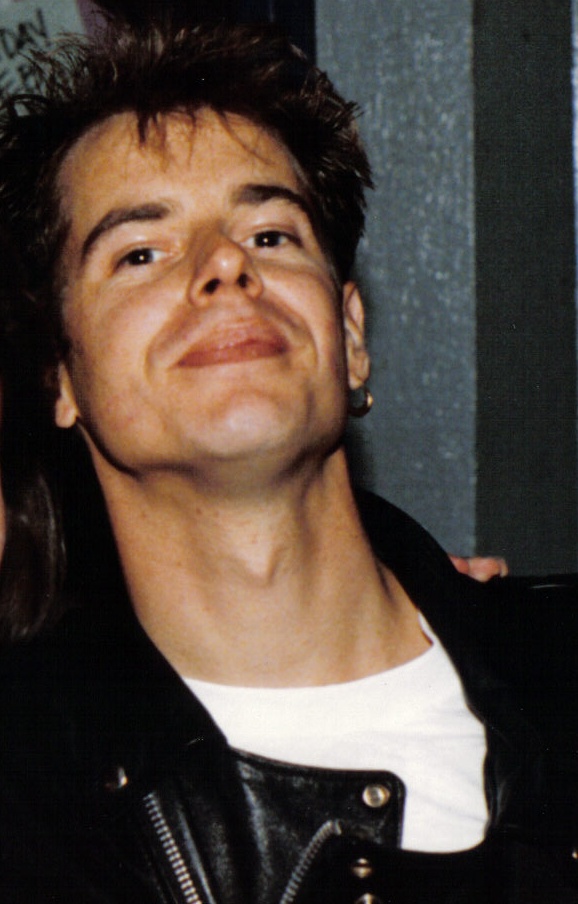
Not the emperor of ice cream, mind you, though I wouldn’t be surprised a bit to learn his curds were concupiscent….
Going back to the radio daze archives for this podcast. From about 1985 to 1988 (I’m fuzzy on the beginning date), I worked as a DJ at WWWV-FM in Charlottesville, Virginia, where I was in graduate school at UVA. For the first year or so I had my own special show: “Late Night With Gardner Campbell.” Highly imaginative show title. The cool thing about the show, for me anyway, was that by running from 10-1 at night I got to be more adventurous than my non-late-night colleagues. I played some music from the playlist, but I played other music that was off the playlist, and on occasion I would do special shows. My Neil Finn interview dates from this time. So does tonight’s podcast, which features a special guest I refer to merely as the “ice cream man.”
Now it can be told that this man was none other than Eddie Dean, a terrific music writer who’s been published in The Washington Post, The Philadelphia Inquirer, the Washington, D.C. City Paper, and even in Best Music Essays of 2000, a collection edited by the extraordinary Peter Guralnick. At the time Eddie was finishing up his undergraduate career at UVA, where he was my student in the very first college class I taught all by myself: Freshman English Composition.
Eddie was obviously special from the get-go. He’s still probably the single most imaginative and intense writer I’ve ever taught–and I’ve had some fine writers, believe me. Along with our common literary interests, Eddie and I also shared a deep love of popular music. He used to come visit me in my grad-student cubbyhole and we’d argue the merits of everything from Yoko Ono to the Guess Who for hours, just ranting and raving and having a great young time.
I miss Eddie. He followed his muse and I followed mine, and though we still keep in irregular touch through friends and family, I haven’t seen him in a while. But every now and then I’ll see one of Eddie’s pieces in the Post or elsewhere, and he never, ever fails to satisfy and inspire me. Truth is, I probably learned more from him than he ever did from me.
This podcast demonstrates just how zany we could get. I have no idea whether anyone else will find this funny, but as I listen to it again two decades later, it still tickles me, and I hope you enjoy it.
Podcast: Play in new window | Download (10.7MB)








